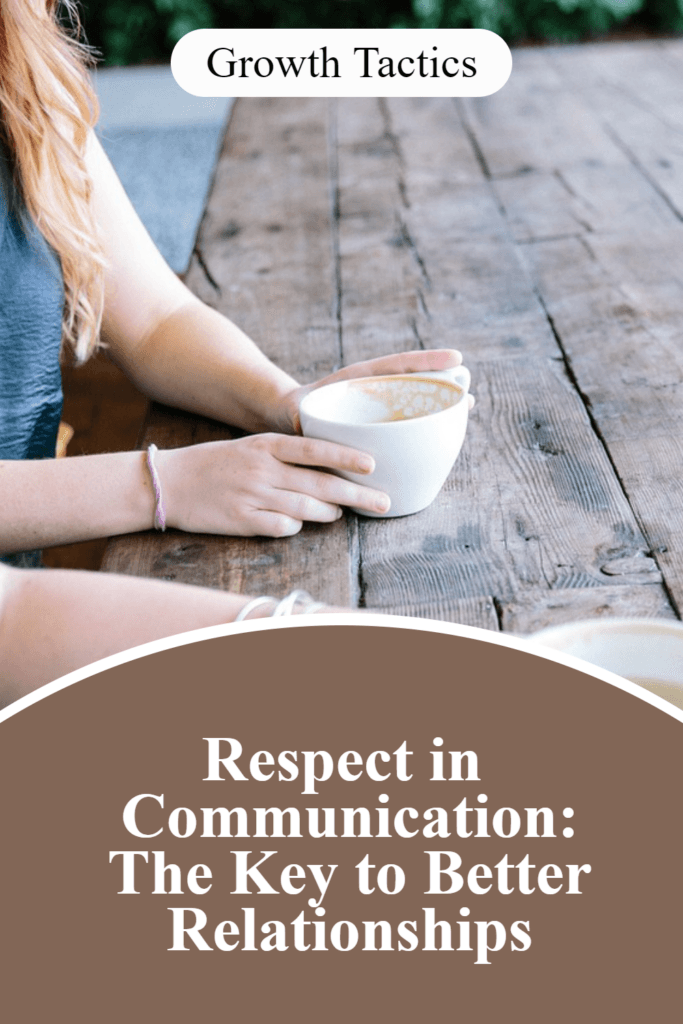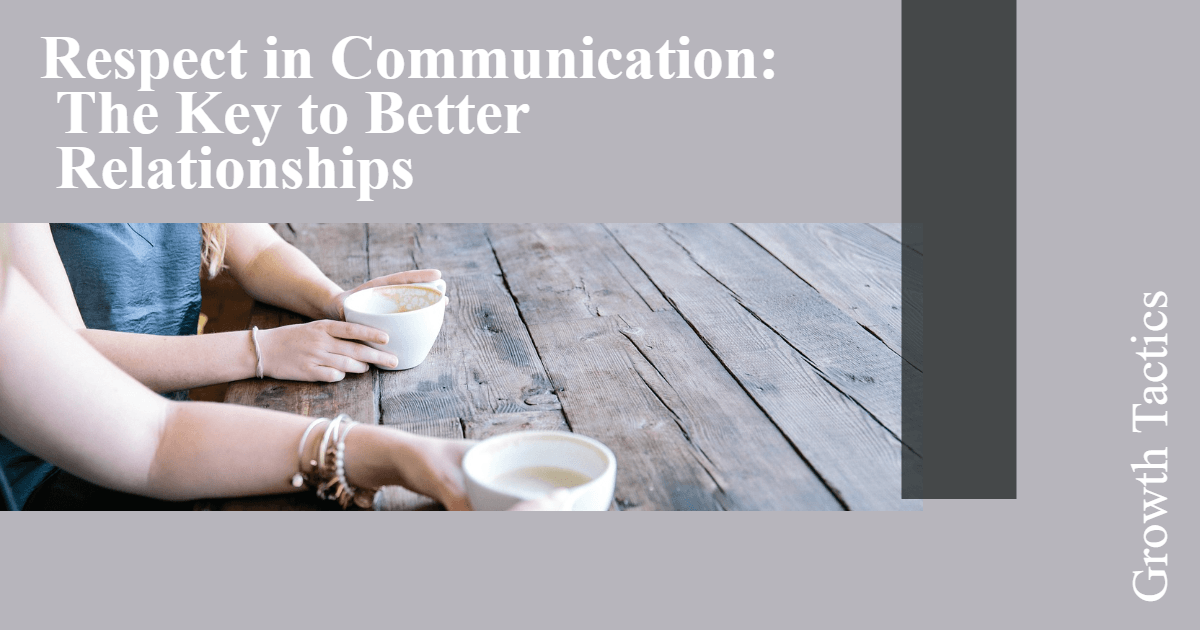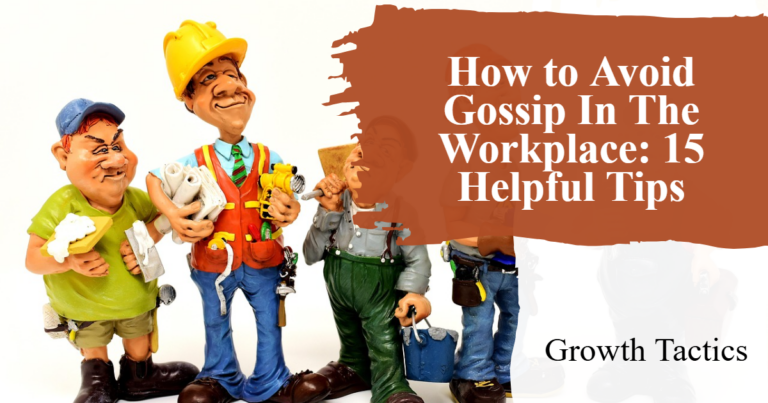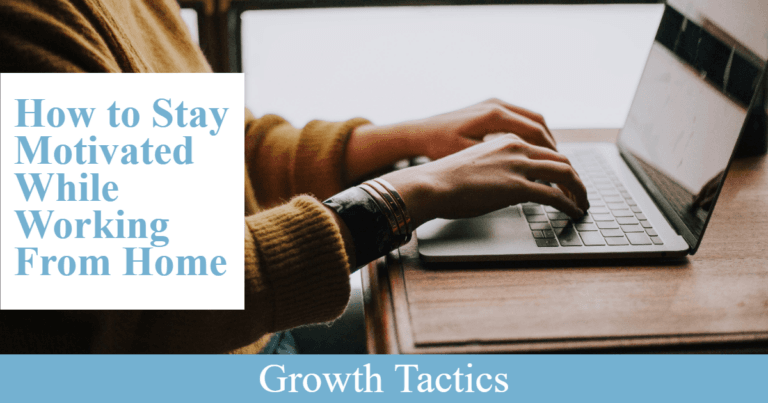Have you ever felt like your words hit a wall? Maybe you’re trying to connect, but something’s off. The secret ingredient might be respect in communication.
It’s not just about being nice, it’s about building bridges between people. Let’s explore how you can become a master bridge-builder in your relationships.
Jump To Section
Respect and Communication: The Power Duo

Respect and communication are like peanut butter and jelly. Great on their own, but amazing together. When you mix respect with good communication, you’re unstoppable. Let’s dig in and see why.
Why Respect Matters in Communication
Respect is like a secret ingredient in your conversations. It makes people want to listen to you. When people feel respected, they’re more likely to open up and share their thoughts, leading to better understanding all around.
Think about it:
- Have you ever felt ignored? Not fun, right?
- Now, remember a time when someone really listened to you. Feels good, doesn’t it?
That’s the power of respect in action.
Your Unique Communication Style
Everyone communicates differently. That’s okay! The key is to find your own style that’s both respectful and true to you. Maybe you’re great at listening. Or perhaps you’re good at explaining things clearly. Use your strengths!
Think about:
- What do you do well in conversations?
- Where could you improve?
- How can you show more respect in your daily talks?
Use these questions to build your own communication superpowers.
Respect and communication go hand in hand. When you combine them, you build stronger relationships, solve problems faster, and grow as a person.
Examples of Respectful Communication
Want to see what respectful communication looks like? Here are some everyday examples:
- Listening without interrupting when your friend is talking
- Saying “please” and “thank you” to the cashier at the store
- Asking your coworker how their day is going (and really listening to the answer)
- Disagreeing with someone’s idea without putting them down
These small acts can make a big difference. They show you value the people around you.
Levels of Respect: From Basic to Deep
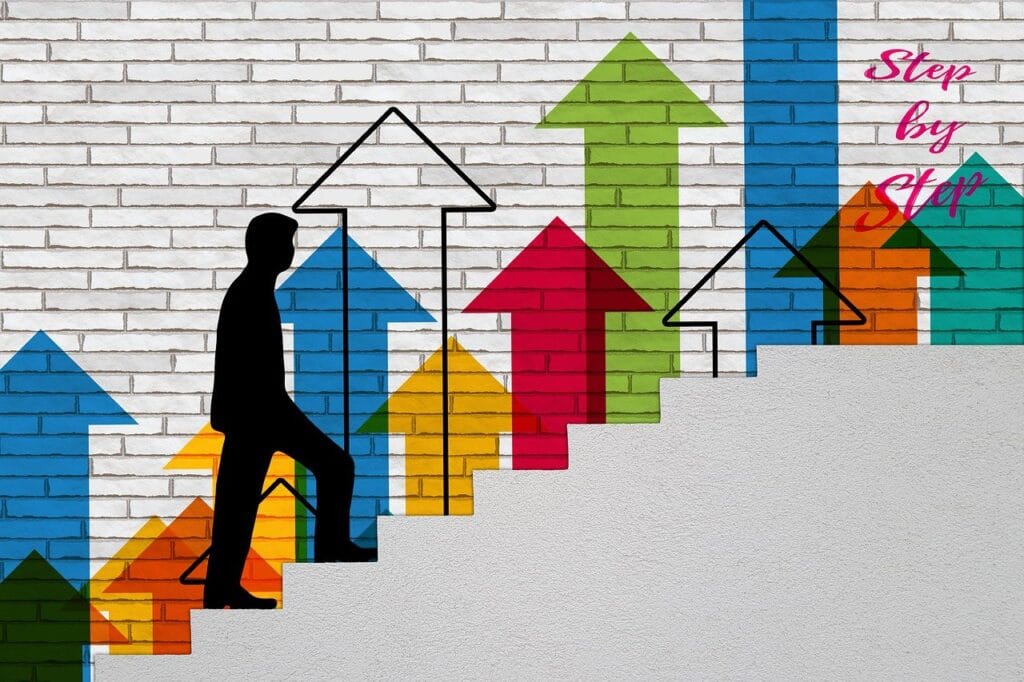
Respect isn’t just one thing. It’s like a ladder with different levels. Let’s explore these levels and see how you can climb to the top!
Level 1: Basic Politeness
This is where respect starts. It’s about being nice and following social rules. Think of it as respect 101:
- Saying “please” and “thank you”
- Holding doors open for others
- Not interrupting when someone’s talking
These small acts make a big difference. They show you care about others’ feelings.
Level 2: Active Listening
Now we’re stepping it up. Active listening means really paying attention when someone talks. It shows you value their thoughts:
- Make eye contact
- Nod to show you’re following along
- Ask questions to understand better
When you listen actively, people feel heard and appreciated.
Level 3: Valuing Differences
We’re all unique, and that’s awesome! This level is about respecting those differences:
- Be open to new ideas
- Try to understand others’ points of view
- Celebrate what makes each person special
Remember, different doesn’t mean wrong. It just means different!
Level 4: Empathy in Action
Here’s where respect gets deep. Empathy means putting yourself in someone else’s shoes:
- Think about how others might feel
- Offer help when someone’s struggling
- Stand up for others when they’re treated unfairly
Empathy turns respect into action. It’s powerful stuff!
Level 5: Mutual Growth
This is the top of the respect ladder. It’s about helping each other become better:
- Share your knowledge and skills
- Encourage others to reach their goals
- Be open to learning from everyone around you
At this level, respect becomes a two-way street. Everyone grows together.
Finding Your Respect Level
So, where are you on this ladder? Maybe you’re great at basic politeness but could work on active listening. Or maybe you’re super empathetic but forget to say “please” sometimes. That’s okay!
Here’s what you can do:
- Think about your daily interactions. Which level do they usually hit?
- Pick one level above where you are now. Focus on that.
- Practice one new respectful behavior each day.
- Notice how people respond when you show more respect.
Remember, moving up the respect ladder takes time. Be patient with yourself. Every step you take makes a difference!
The Power of Active Listening
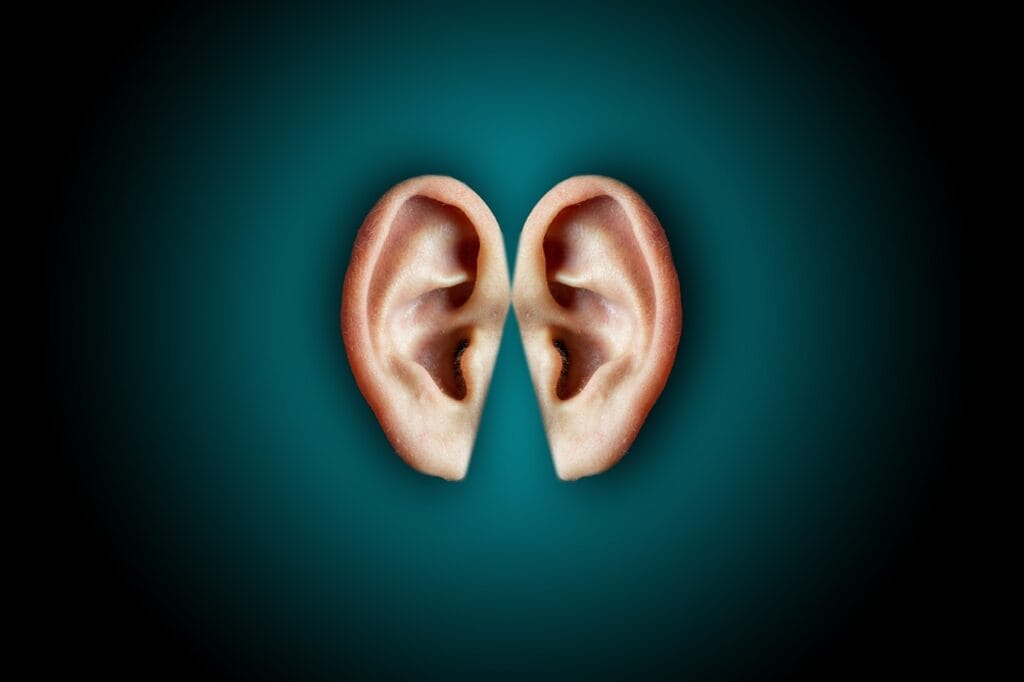
Ever feel like you’re not really being heard? Active listening can change that. It’s a skill that can transform your conversations and relationships.
What is Active Listening and Why Should You Care?
Active listening is more than just hearing words. It’s about fully focusing on the speaker and understanding their message. When you listen actively, you’re saying, “You matter to me.” It’s a powerful tool for building trust and solving problems.
Sharpen Your Listening Skills
Want to become a better listener? Try these tips:
- Put away distractions (yes, that includes your phone)
- Make eye contact
- Nod or use small verbal cues to show you’re engaged
- Ask questions to clarify what you’ve heard
- Resist the urge to interrupt or judge
Remember, everyone’s journey to better listening is different. Find what works for you and practice it daily.
Respect Through Listening
When you listen actively, you show respect in a big way. You’re giving someone your most valuable resource: your undivided attention. It tells them their thoughts and feelings are important to you.
Active listening can help you:
- Understand others better
- Avoid misunderstandings
- Build stronger relationships
- Solve problems more effectively
By becoming a better listener, you’re not just improving your communication skills. You’re becoming a better leader, friend, and problem-solver.
So, next time you’re in a conversation, challenge yourself to really listen. You might be surprised at what you learn and how it changes your interactions. Your journey to better communication starts with one conversation at a time.
Speaking with Respect: Your Words Matter

Your words are like seeds. Plant them wisely, and watch your relationships grow. Let’s explore how to speak with respect and why it’s so important.
The Weight of Your Words
Every word you choose has power. It can lift someone up or bring them down. When you speak with respect, you open doors to understanding and cooperation. But harsh words? They can slam those doors shut.
Think about a time when someone’s words made you feel great. Now, think about a time when words hurt you. See the difference? That’s the impact of word choice.
Respect in Action: Words That Work
Let’s look at some examples:
Respectful: “I see things differently. Can we talk about it?”
Disrespectful: “You’re wrong. That’s a stupid idea.”
Respectful: “I appreciate your effort. Here’s how we can make it even better.”
Disrespectful: “This isn’t good enough. Do it over.”
Respectful: “I feel frustrated when plans change at the last minute.”
Disrespectful: “You always mess things up!”
See how the respectful versions invite conversation, while the disrespectful ones shut it down?
Find Your Respectful Voice
Now, it’s your turn to shine. Your respectful voice is unique to you. It’s not about copying others, but finding what works for you. Here are some tips:
- Think before you speak. Is it true? Is it kind? And is it necessary?
- Use “I” statements to express your feelings
- Ask questions to understand, not to attack
- Practice empathy. Put yourself in their shoes
Remember, becoming a respectful communicator is a journey. You’ll have good days and bad days. That’s okay. What matters is that you keep trying.
Your words have the power to change your world. Use them wisely, and watch how your relationships grow.
Respectful Communication in the Workplace

Respectful workplace communication is not just a nice-to-have. It’s a must-have. When respect flows through an office, great things happen. People work better together. They solve problems faster. And they actually like coming to work!
Why Respect in the Workplace Matters
Think about a time when you felt respected at work. How did it make you feel? Probably pretty good, right? That’s because respect is like fuel for your work engine. It keeps you going, even when things get tough.
Respect at work means:
- Your ideas get heard
- People trust you to do your job
- You feel safe to speak up
- Everyone treats each other as equals and collaborate
- It creates a positive work environment
When respect is missing, work becomes a drag. Nobody wants that!
Real-Life Examples of Respect Conversation at Work
So, what does respect look like at work? Here are some examples:
- “Thanks for your hard work on that project, Sarah.”
- “I disagree, but I’d like to hear more about your idea.”
- “I made a mistake. Here’s how I’m going to fix it.”
- “Can we schedule a meeting to discuss this further?”
Notice how these phrases show appreciation, openness, and honesty. That’s respect in action!
Creating a respectful workplace isn’t always easy. There will be tough days. But stick with it. The rewards are worth it. You’ll build stronger relationships, solve problems faster, and actually enjoy going to work.
Handling Disagreements with Respect

Let’s face it: disagreements happen. At work, at home, and even with friends. But here’s the secret, respect can turn these tough moments into chances to grow.
Why Respect Matters in Conflicts
Think of respect as your superpower during disagreements. It can:
- Keep tempers cool
- Helps you see the other person’s side
- Find solutions faster
- Build stronger relationships
When you show respect, even in tough times, people listen. They’re more likely to work with you, not against you.
Your Toolkit for Respectful Disagreements
Ready to disagree with respect? Try these strategies:
- Listen first, talk second: Really hear what the other person is saying.
- Use “I” statements: Say “I feel…” instead of “You always…”
- Ask questions: Try to understand their point of view.
- Stay calm: Take a deep breath if you need to.
- Look for common ground: Find something you both agree on.
Remember, these are tools, not rules. Use what works best for you and the situation.
Turn Conflicts into Growth Opportunities
Here’s the cool part, disagreements can actually help you grow. They’re chances to:
- Learn something new
- Improve your communication skills
- Understand different perspectives
- Build stronger relationships
Next time you’re in a disagreement, ask yourself: “What can I learn from this?” You might be surprised by the answer.
Handling disagreements with respect isn’t always easy. It takes practice. But stick with it. The more you do it, the better you’ll get. And the better you get, the more you’ll grow.
So, are you ready to tackle your next disagreement with respect? Remember, it’s not about winning or losing. It’s about understanding and growing together. You’ve got this!
Conclusion
Respect in communication is your personal bridge-building tool. It’s not always easy, but it’s worth it. Start small. Try one new respectful communication skill today.
Remember, every respectful word or gesture is a plank in the bridge to better relationships. What will you build today?
